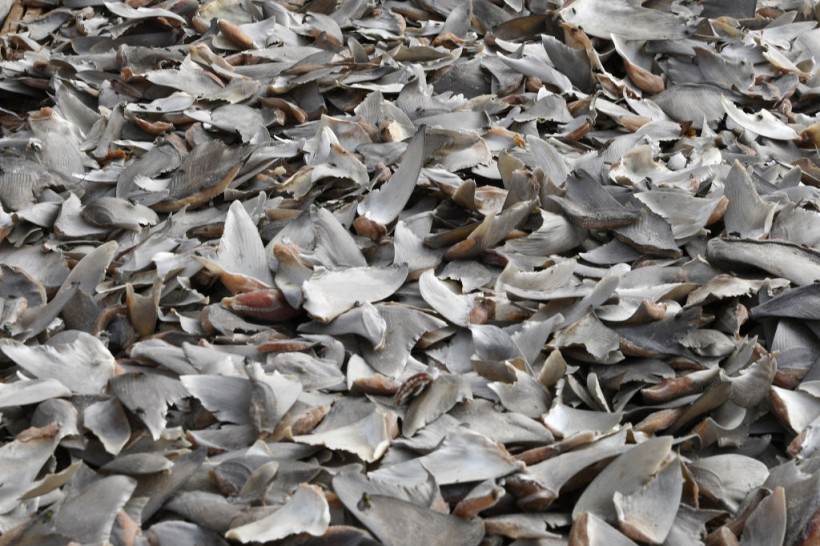Brazilian officials from Ibama, a federal agency under the Ministry of the Environment, conducted the world's largest-ever seizure of illegal shark fins, confiscating over 63,200 pounds (28,700 kilograms) on Monday.

Dried shark fins are displayed at a stand for sale at the beach of Hann, Dakar, on July 22, 2019.
Illegal Shark Fin Industry in Brazil
The process of illegally removing a live shark's fin and discarding the rest, known as shark finning, continues to occur in Brazil despite a national ban on shark fishing, as per Live Science.
The fins are primarily sold in Asian countries, where they are used in traditional medicine and shark fin soup, commanding high market prices. Previous instances of shark finning in Brazil have been discovered, with thousands of sharks being killed in a similar manner.
During the recent seizure, over 63,200 pounds (28,700 kilograms) of shark fins were confiscated, likely resulting in the death of approximately 10,000 sharks, including endangered species like the shortfin mako shark.
Ibama officials said in a press release that an estimated of over 95% of the seized fins came from a single unidentified exporting company in Santa Catarina, Brazil, while the remaining portion was intercepted from another unnamed company operating at São Paulo-Guarulhos International Airport.
Ibama, responsible for monitoring the trade and export of shark fins, has observed a significant volume of fins being marketed, primarily to the Asian consumer market.
The impact of this illegal practice extends globally, with an estimated 73 million sharks killed annually for their fins. To combat this issue, the Biden Administration signed a law in December 2022 banning the buying and selling of shark fins in the United States.
The continued occurrence of shark finning highlights the ongoing threats to shark populations and marine ecosystems. Efforts to combat this practice are crucial to protect these apex predators and maintain the balance of marine ecosystems worldwide.
READ ALSO: 7ft Mako Shark Jumps Onto Fishing Boat After Struggling to Escape
Truth Behind the Infamous Shark Fin Soup
The gruesome practice of removing a shark's fins for culinary purposes has a long and troubling history. These fins are predominantly used in the traditional Chinese delicacy of shark fin soup, which has led to a high demand for the harvested fins.
Unfortunately, the relentless pursuit of shark fins over the centuries has taken a severe toll on shark populations. As a result, many shark species are facing the risk of extinction due to the relentless decimation of their numbers through finning.
According to an article in Sharksider, the process of shark finning is not only ethically reprehensible, but it also poses significant ecological threats. Biodiversity is a fundamental aspect of maintaining a healthy and balanced ecosystem. The loss of shark populations disrupts this delicate balance and can have far-reaching consequences for the marine environment.
As Ibama officials estimated, the recent seizure of shark fins likely resulted in the deaths of approximately 10,000 sharks, with the majority being blue sharks (Prionace glauca) and shortfin makos (Isurus oxyrinchus). Take note that the International Union for Conservation of Nature (IUCN) has classified the shortfin mako shark as an endangered species.
While it is essential to acknowledge cultural heritage and traditions, the urgency and significance of preserving shark species should outweigh any arguments in favor of continuing this practice.
RELATED ARTICLE: China's Largest Fishing Fleet Stands as One of the Worse Shark Finning Vessels
Check out more news and information on Shark Finning in Science Times.














